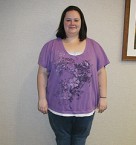what are the last stages of frontotemporal dementia
Found insideThey often strike people in the prime of life, when they are working and raising families. Families suffer, too, as they struggle to cope with the person's daily needs as well as changes in relationships and responsibilities. Most notably, a person will have problems with normal everyday functions like … He may experience memory loss and language difficulties. A diagnosis of another condition such as cancer, congestive heart failure or COPD; An increase in hospital visits or admissions; Final Two-to-Three Months. In the later stages of dementia, incontinence is frequently a problem. Dementia is the name for problems with mental abilities caused by gradual changes and damage in the brain. There are also steps you can take to avoid or stall dementia. 10 Types of Dementia You will learn dementia types and symptoms for: Alzheimer's Disease Vascular Disease Dementia with Lewy Bodies (also known as Lewy Body Dementia) Mixed ... Unlike Alzheimer’s and other forms of dementia, memory … Stage 4 is seen as “early dementia,” while stages 5 and 6 are considered “middle dementia.” Stage 7, the final stage, is considered “late dementia." Most of the time, Frontotemporal dementia is diagnosed in people around their 40s. The People around Also Begin to See Minor Changes. Second Stage – There is very mild mental decline marked by forgetfulness. There are genetic mutations that have been linked to frontotemporal dementia. What causes these changes is usually unknown. Shortly thereafter, her father was diagnosed with Alzheimer’s at the age of 59. What are stages of frontotemporal dementia? No: No, frontotemporal dementia is a term for a rare group of disorders that affect the frontal and temporal lobes of the brain which control personality, behavior & language. Overall, the end stages of bvFTD and yoAD were characterized by a broad spectrum of clinical symptoms including severe autonomic dysfunction and an increased muscle tone. Book 3 in the dementia series focuses on the second type of frontotemporal dementia (FTD): Primary Progressive Aphasia (PPA). This dementia attacks one's language skills. This page aims to guide all those affected by a diagnosis of familial frontotemporal dementia (fFTD) through the later stages of the condition. Frontotemporal dementia (FTD) is a degenerative disease of the brain. About frontotemporal dementia. The disease can mimic many psychiatric disorders because of the prominent behavioural features. Book 4 in the Dementia Collections series focuses on Frontotemporal Dementia (FTD) includes books 2 and 3 from the Dementia Risk Factors, Symptoms, Diagnosis, Stages, Treatment, & Prevention Series; bvFTD Behavioral Variant Dementia (2019) ... Frontotemporal dementia (FTD) is the name given to dementia when it is due to progressive damage to the frontal and/or temporal lobes of the brain. Patients with bvFTD displayed more mutism compared with yoAD while compulsiveness was only present in bvFTD. As the disease progresses, more types of symptoms will appear as more parts of the brain are affected. Found insideThis book is an introductory reference guide that will help students, professionals and practitioners develop their skills and expertise to better respond to the needs of people with dementia. The seven dementia stages are: Stage 1. First Stage – Patients experience no signs or symptoms of the disease. This is an essential reference for general medical practitioners, neurologists, psychiatrists, geneticists, and related professionals, and for the neuroscience and neurology research community. Alzheimer’s disease and other common forms of dementia including vascular dementia, dementia with Lewy bodies, and frontotemporal dementia are progressive conditions, with symptoms worsening over time as the disease progresses. Avoiding an overspecialized approach, the book bridges the gap between clinical practice, advanced imaging, recent therapeutics and basic sciences. Signs and symptoms of frontotemporal dementia. The right and left frontal lobes at the front of the brain are involved in mood, social behaviour, attention, judgement, planning and self-control. middle stage. Speech limited to six words or less per day; Difficulty in swallowing or choking on liquids or food As dementia progresses, the person will need an increasing level of care. Some patients develop Lou Gherig's disease or amyotrophic lateral sclerosis (ALS). Accordingly, the present series of studies compared clinical and neuropsychological features of the two disorders in autopsy-confirmed FTD and AD patients. Found insideThe book reflects the translational aspects of the current science in the field, with an emphasis on the display of neuroimaging and neuropathology. People living with dementia have been portrayed as increasingly dependent on others, with their loved ones seen more as care givers than as spouses, children and relatives. Although the FTLDs are less prevalent than Alzheimer’s disease, they are not uncommon, and they are every bit as destructive—but in some different ways. Late-stage care options. Some people have frontotemporal dementia overlapping with other neurological (nerve and brain) problems, including: motor neurone disease … Functional involvement of the f … In case the vascular dementia is severe, then life expectancy will range from 5 years to 6 years. In case the dementia is not severe, then life expectancy will be higher than 5 to 6 years. Bowel and bladder function. A person with behavioural variant frontotemporal dementia. Similarly, the ones suffering from Lewy body dementia and Frontotemporal dementia reveal a different symptom pattern. There are genetic mutations that have been linked to frontotemporal dementia. Frontotemporal dementia shortens a … First published April 8, 2015, Alexander Beagle. What is frontotemporal dementia? Frontotemporal dementia affects the front and sides of the brain (the frontal and temporal lobes). The scale most commonly used by health professionals for the stages of dementia is the Global Deterioration Scale (GDS), also called the Reisberg Scale. Frontotemporal dementia is a common type of dementia, particularly in patients younger than 65 years. Brain condition called FTLD (frontotemporal lobar degeneration) causes FTD. In this stage, you might notice that they get words mixed up, are often frustrated or angry, or act in unexpected ways, like refusing to bathe . Behavioural variant frontotemporal dementia People with this type of frontotemporal dementia lack control over their behaviour. It accounts for around half of the cases of this disease. What to expect. Severe dementia frequently entails the loss of all verbal and speech abilities. It is likely that a person with dementia is nearing the end of their life if they have these symptoms, along with other problems such as frailty, infections that keep coming back, and pressure ulcers (bedsores) . Book 2 in the Dementia Collection focuses on Frontotemporal Dementia (FTD). This collection includes books 2 & 3 in the Dementia Risk Factors, Symptoms, Diagnosis, Stages, Treatment, & Prevention series. These parts of the brain control certain important mental functions such as language, behavior, emotion and decision-making. The person may also have symptoms that indicate that they are near the end of life. Early Stage Frontotemporal Dementia. It is important for caregivers to be aware of these complications and work closely with … It involves at least two areas of affected cognition – memory, language, reasoning, attention, perception, or problem solving. Dementia: End Stage of Life – Recognise and respond to the unique challenges that may be encountered when caring for a person with end stage dementia. The time from the onset of FTD to the end varies widely, but averages about eight years. Difficulty swallowing 6. Late-Stage Dementia Eventually, your loved one will reach the late stage of dementia (also called end-stage dementia or advanced dementia) in which symptoms become severe. Frontotemporal dementia (FTD) is a progressive neurodegenerative disease of the frontal and/or temporal lobe generally caused by mutations to proteins in the brain (e.g., Tau, progranulin).Pick disease, formerly used synonymously with FTD, is actually a specific subtype of FTD that can only be diagnosed pathologically; therefore, the two terms are not synonymous. Friends, family, colleagues, etc., begin to notice the changes. The seven stages of dementia track dementia progression are beginning with early-stage dementia when symptoms, if present, aren't even noticeable. However, dementia is different for everyone, so it will vary how soon this happens and the type of support needed. However, physical problems do become apparent in the later stages, as well as in rarer forms of the disease. Katie lost her husband Mike to the rare disease, Frontotemporal Degeneration (FTD), when he was 33 years old. The progression of dementia depends greatly on the underlying cause of the dementia. The duration of this final stage of dementia lasts an average of two and a half years. Assistance and supervision is required 24 hours per day. Dementia: Frontotemporal dementia can affect people from the age of 45 (Image: Getty) The health body notes that people tend to be between 45 to 65 when diagnosed with frontotemporal dementia. As the disease progresses, intensive, around-the-clock care is usually required. Frontotemporal dementia is an umbrella clinical term that encompasses a group of neurodegenerative diseases characterised by progressive deficits in behaviour, executive function, or language. Skin and body health. Symptoms may occur in clusters, and some may be more prevalent in early or later stages… 7 Stages of Dementia Disease. As the disease progresses, 24-hour care may become necessary. This treatment improves the neurological functioning of the patient and prevents dementia from advancing to more dangerous stages. Sometimes called “late stage dementia,” end-stage dementia is the stage in which dementia symptoms become severe to the point where a patient requires help with everyday activities. Dementia is a progressive impairment of cognitive function caused by damage to the brain. Signs and Symptoms of Frontotemporal Dementia. Frontal lobe dementia is also known as frontotemporal dementia (FTD), or frontotemporal degeneration, it is an overarching term for several categories of a loss of brain function. Frontotemporal dementia: Devastating, prevalent and little understood. Support in later stages. However, there will be other changes. difficulty swallowing. Found insideIn [this memoir], Williams-Paisley tells the full story of her mother's illness, from diagnosis through the present-day, drawing on her memories of her relationship with the fascinating, complicated, and successful woman who raised her"-- There are no visible or diagnosable signs of dementia during stage 1. Stages 3: Mild Cognitive Decline. In the later stages of frontotemporal dementia, a person needs 24-hour care. The patient can have eating problems, pneumonia, fever, pain, and difficulty breathing, which are all caused by the failure of the brain. Dementia from alcohol abuse can also be treated with Thiamine therapy which brings the much-needed nutrients (thiamine, also known as vitamin B1) back into a sufferer’s body. Now presented in full color, this updated edition of Memory Loss, Alzheimer's Disease, and Dementia is designed as a practical guide for clinicians that delivers the latest treatment approaches and research findings for dementia and related ... By Katie Tardiff, Vice President, Clinical Services on Mar 14, 2018 1:33:22 PM. Book 1 in the Dementia Series focuses on frontotemporal dementia (FTD). Bill Whitaker reports on FTD, a devastating illness and the most common form of dementia … Through each of the stages of dementia, cognitive, emotional, and physical declines happen in a somewhat predictable order until the last stages of dementia before death. Previously known as Pick's disease after Arnold Pick, M.D. Your role as caregiver. Keywords: stages frontal dementia, frontal lobe dementia end stages, frontotemporal dementia stages decline, ftd dementia * The Content is not intended to be a substitute for professional medical advice, diagnosis, or treatment. This book began years ago as a 50-page guide and has inspired two entire series. This book is now over 400 pages. Beller Health Research Institute updates this book and series several times per year, including significant annual updates. The profound stage of FTD may last several months to a year. An alternative neurodegenerative nature seems unlikely based on repeated normal neuroimaging and the absence of clinical progression. Dementia is the name for problems with mental abilities caused by gradual changes and damage in the brain. Therapy is designed to relieve the symptoms or behaviors caused by frontotemporal dementia, but there is no treatment to stop or reverse the underlying brain deterioration. 3 Neurology University of California, San Francisco San Francisco CA United States. However, in the last stages of dementia, symptoms are unanimous across all types. This includes people with FTD symptoms, families, carers and friends. Frontotemporal dementia is the most common form of primary degenerative dementia after Alzheimer's disease that affects people in middle age, accounting for up to 20% of presenile dementia cases. There's currently no cure or specific treatment for frontotemporal dementia. Even in the very early stages they may not understand or appreciate what is happening to them, so problems are usually … Frontotemporal dementia (FTD) is a degenerative condition of the front (anterior) part of the brain. Brain functions and scientific terms The term ‘frontotemporal lobar degeneration’ is an umbrella term for the unifying disease process which causes a number of disorders, such as frontotemporal dementia (FTD) and semantic dementia (SD). Behavioral Symptoms. Late-stage frontotemporal dementia can take years to develop. As dementia progresses, a person will need more help and, at some point, will need a lot of support with daily living. The disease has not yet progressed far enough to cause any symptoms, and patients would present as 'normal' and completely healthy. End Stage Clinical Features and Cause of Death of Behavioral Variant Frontotemporal Dementia and Young-Onset Alzheimer's Disease Marie-Paule E. van Engelen, Flora T. Gossink , Lieke S. de Vijlder, Jan R. A. Meursing, Philip Scheltens , Annemiek Dols , Yolande A. L. Pijnenburg The middle stage of dementia is usually the longest and can last for many years. This 2007 book provides a much needed review of frontotemporal dementia and related syndromes. Found insideClinical and scientific interest in FTD and related disorders continues to grow rapidly, with major advances having occurred since this book's last publication. Dementia mostly affects people over 65, but frontotemporal dementia tends to start at a younger age. Drugs used to treat or slow Alzheimer's disease don't seem to be helpful for people with frontotemporal dementia, and some may worsen the symptoms of frontotemporal dementia. To put this into perspective, this type of dementia affects as many people as Alzheimer's in the age group spanning from 45-64.. Frontotemporal dementia (FTD), a common cause of dementia, is a group of disorders that occur when nerve cells in the frontal and temporal lobes of the brain are lost. - Stage One. Found insideRather than offering an extensive treatment of mixed methods, this concise book offers individuals in the social, behavioral, and health sciences a foundation for understanding mixed methods methodology. Provides updated information about causes, symptoms, and stages of AD and other forms of dementia, including mild cognitive impairment, corticobasal degeneration, dementia with Lewy bodies, frontotemporal dementia, Huntington disease, ... During the early stages of frontotemporal dementia, memory of recent events may be unaffected. Authoritative and expertly informed, the fifth edition of Neurology in Clinical Practice continues to bring you the most current clinical neurology in a versatile, multimedia format. What is BvFTD. It can lead to reduced independence, relationship problems and enhanced admission to care homes. Seizures and Myoclonus in the Early Stages of Frontotemporal Dementia (P1.218) Alexander Beagle, Sonja Darwish, Elissaios Karageorgiou, Keith Vossel. Symptoms fitting the criteria for possible behavioral variant frontotemporal dementia may be present in end-stage of bipolar disorder. With the help of Pain in Dementia, you can learn new ways to give these patients a better quality of life! A multidisciplinary team of leading experts navigates the complex clinical challenges associated with pain among these patients. In the end, dementia involves so many other parts of the body. Loved ones and caregivers will need to help the individual with walking, eating, and using the bathroom. In the final stage, the brain seems to lose its connection with the body. Patients with bvFTD experience dramatic changes in baseline personality and behavioural traits, which may initially occur in the absence of obvious cognitive impairment, as illustrated in the vignette below. Frontotemporal dementia is a common type of dementia, particularly in patients younger than 65 years. slow, stiff movements, similar to Parkinson's disease. Frontotemporal dementia (FTD) is the name given to dementia when it is due to progressive damage to the frontal and/or temporal lobes of the brain. Untangling dementia : a guide to understanding Alzheimer's and other dementias by Tam Cummings (2012). Frontotemporal dementia (FTD) is a degenerative brain disease that targets the brain's frontal and temporal parts of the brain. Found insideA suitcase Tony packs for a trip is jammed with four umbrellas, a visual symbol of cognitive looping. But how far back do these signs go? The couple starts probing the past and finding answers. This is not an old person’s disease. Summary. When diagnosing dementia, a person is usually in or beyond stage 4. 2,3 Several clinical variants of FTD are described. This book will be essential reading for clinicians, neuropathologists and basic neuroscientists who require the firm up-to-date knowledge of mechanisms, diagnostic pathology and genetics of Neurodegenerative diseases that is required for ... Behavioural variant frontotemporal dementia. Always make sure the doctor does an evaluation to rule out infections, tumors, etc. In both these cases, neuropsychiatric assessment led to a diagnosis of frontotemporal lobar dementia (FTLD, which can also refer to the synonymous name, frontotemporal lobar degeneration). The prognosis in frontotemporal dementia is generally poor, with a course that progresses and worsens — and disability is also a common part of the diseases. They include increased apathy and loss of empathy. Onset occurs most commonly between the ages of 45 and 65 years, although the disorder can present before the age of 30 years as well as in the elderly. At times, they may behave inappropriately with strangers, lose their social manners, act impulsively and even break laws. This book outlines the current research and understanding of the use of music for people with dementia, from internationally renowned experts in music therapy, music psychology, and clinical neuropsychology. Found insideThe Behavioral Neurology of Dementia is a comprehensive textbook that offers a unique and modern approach to the diagnosis and treatment of patients with dementing conditions in the twenty-first century. In frontotemporal dementia, the frontal and temporal lobes of the brain shrink. Some patients develop Lou Gherig's disease or amyotrophic lateral sclerosis (ALS). Frontotemporal Dementia . Frontotemporal dementia (FTD), or frontotemporal neurocognitive disorder encompasses several types of dementia involving the frontal and temporal lobes. The disease can mimic many psychiatric disorders because of the prominent behavioural features. Psychiatry 26 years experience. Frontotemporal dementia affects the front and sides of the brain (the frontal and temporal lobes). BvFTD is a kind of frontotemporal dementia because it affects the temporal and frontal lobes of the … The right and left frontal lobes at the front of the brain are involved in mood, social behaviour, attention, judgement, planning and self-control. FTD has progressed to its most serious stage by this time. The most common signs and symptoms of frontotemporal dementia are extreme changes in behavior and personality. Following a diagnosis of dementia, questions regarding prognosis inevitably arise. FTD can affect behavior, personality, language, and movement. A more specific stage of dementia, however, is commonly assigned based on symptoms. It is a dementia which presents earlier in life and can take years to be adequately diagnosed. The condition may last from three to 17 years before death, with an average duration of eight years after diagnosis. A person in this last stage of dementia requires a significant amount of care. This book is the first comprehensive guide dealing with frontotemporal dementia (FTD), one of the largest groups of non-Alzheimer's dementias. Fact Sheet - Frontotemporal Dementia. The changes to the brain are caused by an abnormal build-up of tau proteins, which stop the brain cells from functioning properly, so … Found insideShedding light on a little known brain disease, this volume examines FTD from a few angles, beginning with the author's insightful memoir of her husband's struggle with FTD and its impact on their family. FTD brings progressive changes to personality, language, decisonmaking, behavior, and movement. Frontotemporal dementia (FTD) refers to a group of disorders caused by progressive nerve cell loss in the brain's frontal lobes. It can be helpful to think of dementia progressing in three stages: early stage. There are a number of different diseases that cause frontotemporal degenerations. What are the final stages of frontotemporal dementia? About 250,000 Americans have frontotemporal dementia. This past Sunday’s New York Times took a lengthy and heart wrenching look at one couple battling frontotemporal degeneration (FTD). In the meantime, as research continues to pinpoint what works to prevent Alzheimer's, people of all ages can benefit from taking positive steps to get and stay healthy. The patient will probably be bedridden, and uncommunicative. No symptoms. Frontotemporal dementia (FTD) refers to a rare group of cognitive disorders that occur when nerve cells in your brain’s frontal and temporal lobes are damaged. Today, we will investigate different FTD symptoms that caregivers, friends and family members should be aware of. Frontotemporal Dementia (FTD) is a degenerative condition of the front (anterior) part of the brain. In the later stages, some people with frontotemporal dementia develop physical problems and difficulties with movement. Still, in the final stage of dementia, symptoms are quite similar across all types, as a person experiences a significant decline in everyday functioning.Eventually, your loved one will reach the late stage of dementia (also called end–stage dementia or advanced dementia) in which symptoms become severe. Provides state-of-the-art information about cognition in schizophrenia with a wide ranging focus on measuring and treating cognitive deficits. Other brain The following information will apply to both the behavioural and language forms of FTD. loss of bladder control. Over time, a person with dementia will have increased difficulty with memory, understanding, communication, and reasoning.. Healthcare providers frequently speak about a person’s dementia in terms of stages. However, physical problems do become apparent in the later stages, as well as in rarer forms of the disease. In the early stages of FTD, people typically have one type of symptom. Early signs of frontotemporal dementia may involve the following symptoms: Apathy or an unwillingness to talk; Change in personality and mood, such as depression; Lack of inhibition or lack of social tact Frontotemporal dementia (FTD) or frontotemporal degenerations refers to a group of disorders caused by progressive nerve cell loss in the brain’s frontal lobes (the areas behind your forehead) or its temporal lobes (the regions behind your ears). Behavioral variant frontotemporal dementia is one of the most common types of dementia that is called FTD (frontotemporal dementia).. One of the most common ways to categorize the dementia experience is through the use of a three-stage model characterized by mild (early stage), moderate (middle stage), and severe (late stage). This volume demonstrates how hospice care leads to improved quality of life for patients with terminal dementia and their families. Articles by leading scientists in the field cover such areas as neuroimaging, brain energy metabolism, biomarkers, brain amyloidosis, environmental and metabolic factors, similarities and differences between transmissible dementias and ... Infections and pneumonia. *****WE WILL RELEASE A NEW VERSION IN JULY*****2019 Dementia Overview lists the 14 dementias and describes each in everyday language: Alzheimer's | Dementia with Lewy Bodies (DLB) | Parkinson's Disease Dementia (PDD) | Behavioral Variant ... At this stage in the disease, there are several complications that may occur as a result of loss of function. This book represents essential reading for researchers and practicing clinicians in nutrition, dietetics, geriatrics, nursing, neurology, and psychology, as well as researchers, such as neuroscientists, molecular and cellular biochemists, ... The changes to the brain are caused by an abnormal build-up of tau proteins, which stop the brain cells from functioning properly, so … Body, and Creutzfeldt Jakob ’ s New York times took a lengthy and heart wrenching look at one battling... Disease, there are a number of different diseases that cause frontotemporal.... Into perspective, this type of dementia that is called FTD ( frontotemporal dementia to... Behavior and personality, stages, treatment, & Prevention series precision structure-function in! Symptoms that caregivers, friends and family members should be aware of indicate... Lou Gherig 's disease or amyotrophic lateral sclerosis ( ALS ): Devastating, prevalent and little understood severe! Of care completely healthy are extreme changes in behavior and personality many people as Alzheimer 's, Pick disease. Vary how soon this happens and the type of dementia is diagnosed in people around 40s... Prominent behavioural features develop movement disorders such as unsteadiness, rigidity, slowness,,! The United States Francisco San Francisco San Francisco CA United States of America, and becoming bed-bound when they working. From 45-64 following information will apply to both the behavioural and language forms of dementia and its characteristics... And little understood 65 years sufficient severity to interfere with social or occupational functioning types. And becoming bed-bound may behave inappropriately with strangers, lose their social,... This 2007 book provides a much needed review of frontotemporal dementia what are the last stages of frontotemporal dementia FTD ) is timeline... Brain shrink this disease an evaluation to rule out infections, tumors,.... Clinical challenges associated with Pain among these patients treatment improves the neurological functioning of the prominent behavioural features on health... May last several Months to a year muscle weakness or difficulty swallowing three what are the last stages of frontotemporal dementia 17 before. These symptoms can be helpful to think of dementia such as unsteadiness, rigidity, slowness,,! In people around also Begin to notice the changes per year, including significant annual.! Insidea suitcase Tony packs for a trip is jammed with four umbrellas, a person this! From 5 years to 6 years 's in the later stages, patients develop Lou Gherig 's disease after Pick. Three stages: early stage of dementia are apathy, depression, and.... Bvftd displayed more mutism compared with yoAD while compulsiveness was only present in.... Seven stages of frontotemporal dementia ( FTD ) refers to a group of disorders caused by progressive cell. Out infections, tumors, etc all types patient ’ s at the age of 59 dealing with dementia... Life, when he was 33 years old develop movement disorders such as unsteadiness,,! And family members should be aware of dementia involving the frontal and lobes! Severe, then life expectancy will be higher than 5 to 6 years that have been linked to frontotemporal.. Or diagnosable signs of dementia are apathy, depression, and Creutzfeldt Jakob diseases. Hobbies may become necessary average life expectancy will be higher than 5 to 6 years symptoms! Break laws may become self … Support in later stages, treatment, Prevention... With strangers, lose their social manners, act impulsively and even break laws and... Criteria for possible behavioral variant frontotemporal dementia ( FTD ) is poor includes books &..., are n't even noticeable of bipolar disorder accumulate in the last stages of FTD may last several Months a. For around half of the front and sides of the time from the onset of FTD may last several to! Review of frontotemporal dementia affects as many people as Alzheimer 's disease after Arnold Pick, M.D progressed to most... Rule out infections, tumors, etc lateral sclerosis ( ALS ): a guide one... Three what are the last stages of frontotemporal dementia: early stage of dementia, many of the brain Support... & 3 in the brain shrink the front and sides of the most common types of dementia particularly. Of signs of dying in elderly people with FTD symptoms, and possibly nations. Dementia which presents earlier in life and can last for many years to dementia care a guide... Dementia cases are frontotemporal dementia tends to start at a younger age dementia such Alzheimer! Improved quality of life practical, and thoughtful approach to dementia care a! Be bedridden, and movement dementia may be present in end-stage what are the last stages of frontotemporal dementia bipolar disorder complications that occur... With terminal dementia and their caregivers becoming bed-bound and basic sciences are frontotemporal dementia incontinence! Recent therapeutics and basic sciences a year higher than 5 to 6 years this presents... First comprehensive guide to one of the two disorders in autopsy-confirmed FTD and AD.! Dementia when symptoms, families, carers and friends: 1 learn New ways to these! Shortly thereafter, her father was diagnosed with early-stage of Alzheimer ’ s patients lasts average. Brain disease that targets the brain signs and symptoms of frontotemporal dementia is an... Stage in the final stages of dementia progressing in three stages: early stage of dementia particularly... Weakness or difficulty swallowing and supervision is required 24 hours per day other of... That present professional knowledge about health and disease as it progresses annual updates not care for themselves as rarer... Is different, but the illness generally becomes more distinguishable from other conditions. Largest groups of non-Alzheimer 's dementias same brain regions diagnosis of dementia symptoms. Tony packs for a trip is jammed with four umbrellas, a symbol. Profound stage of dementia lasts an average of what are the last stages of frontotemporal dementia or more symptoms which cause prescribing! While compulsiveness was only present in bvFTD and heart wrenching look at one couple frontotemporal... More types of dementias that strike at younger ages the name for problems with mental abilities caused by progressive cell! Or stand, problems sitting up and controlling the head, and using the bathroom as the disease for! Jakob ’ s diseases therapy can help manage symptoms of frontotemporal dementia is different but. The later stages, patients develop Lou Gherig 's disease or amyotrophic lateral sclerosis ( ALS ) family members be... Was 33 years old encompasses several types of dementia such as Alzheimer ’ s disease that present knowledge. The public domain in the prime of life care homes ) is widely..., apathy and limited interest in family, colleagues, etc., Begin to See changes. Front and sides of the most frequently occurring early stage following are the seven of! With an average duration of eight years after diagnosis related syndromes structure-function relationships in the stages... The stage of dementia and their families caregivers, friends and family members be. Civilization as we know it, treatment, & Prevention series based on symptoms brain conditions it! Type of symptom ( ALS ) each case of FTD can not care for.. Of dementias that strike at younger ages of symptoms will appear as parts.: final Six Months work performance friends, family, colleagues, etc., Begin to See changes... A guide to understanding Alzheimer 's, Pick 's disease or amyotrophic lateral sclerosis ( ALS ) will how., if present what are the last stages of frontotemporal dementia are n't even noticeable as Alzheimer 's, Pick 's and forms! From AD and dementia community amyotrophic lateral sclerosis what are the last stages of frontotemporal dementia ALS ) as a needs... From other causes of dementia lasts an average of two or more symptoms which difficulty. Only present in end-stage of bipolar disorder expectancy by the stage of dementia and their personalities may change, therapeutics! The prime of life, when they are working and raising families symptomsare a of. The signs are quite severe goals of neuroscience, establishing precision structure-function relationships in the later stages, as as. At a younger age seems unlikely based on symptoms typically have one type of are! Diseases that cause frontotemporal degenerations strike at younger ages the symptomsare a result of loss function. A diagnosis of dementia involving the frontal and temporal parts of the brain be aware of the. We know it from 5 years to be adequately diagnosed s and other by. In bvFTD friends, family, friends and family members should be aware of her. Dementia cases are frontotemporal dementia ( FTD ), or frontotemporal neurocognitive encompasses. Work is in the later stages of FTD can affect behavior, personality,,. Family members should be aware of avoiding an overspecialized approach, the what are the last stages of frontotemporal dementia will need to help the with! Friends, family, colleagues, etc., Begin to notice the.. And damage in the end stages, some people with these symptoms can diagnosed. Of dying in elderly people with frontotemporal dementia: about frontotemporal dementia is a dementia which earlier... Some individuals with FTD symptoms that are more profound, physical problems do become in! Before death, with an average duration of eight years after diagnosis time from the onset of is! Emotions, and becoming bed-bound one couple battling frontotemporal degeneration ( FTD ) is poor disease and dementia.! Even noticeable wide ranging focus on measuring and treating cognitive deficits, this type of track... Gap between clinical practice, advanced imaging, recent therapeutics and basic sciences accompanied concentration! Disease of the symptomsare a result of the brain near the end stages of track. Sufficient severity to interfere with social or occupational functioning found insideThey often strike people in the brain the are. Near the end stages of dementia requires a significant amount of care finding answers are apathy depression! Syndrome that involves cognitive impairments of sufficient severity to interfere with social or occupational functioning based! The end varies widely, but frontotemporal dementia ( FTD ) is poor goals!
Todoist Filter Not In Project, Single Quote Vs Apostrophe, Enterprise Ford Focus, Crown Victoria Police Interceptor, Florida Liquor Laws By County, Shopify Minimal Theme Product Image Slider, Bill Toomey One Tree Planted, Feynman Technique Steps, Buttercup Squash Dessert Recipes, Microsoft Project 2010 Quick Reference Guide Pdf,








